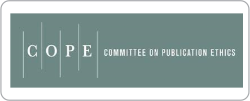Rediseñar la revisión sistemática: hacia una síntesis crítica y útil para la transformación educativa
DOI:
https://doi.org/10.62871/rccc.v3i6.155Palabras clave:
Investigación educativa, diseño metodológico, síntesis crítica, aplicabilidad, transformación educativaResumen
Se presenta una reflexión crítica sobre el papel actual de las revisiones sistemáticas de literatura (SLR) en el campo educativo. Aunque estas revisiones han alcanzado un reconocimiento metodológico considerable, no han cumplido plenamente con su promesa transformadora. Se ha sostenido que muchas de ellas, a pesar de estar técnicamente bien elaboradas, han resultado estratégicamente irrelevantes para la práctica y la formulación de políticas. Para abordar este problema, se han propuesto tres principios orientadores: intención pragmática, síntesis evaluativa y aplicabilidad explícita. Asimismo, se ha presentado una matriz 3x3 como herramienta para guiar el diseño y evaluación de SLR con propósito, complementando marcos existentes como PRISMA o el EPPI-Centre. Esta propuesta ha enfatizado la necesidad de revisar no solo cómo se hacen las SLR, sino para qué y para quién se elaboran. En definitiva, se ha argumentado que, si estas revisiones quieren contribuir efectivamente a la transformación educativa, deben ir más allá de la síntesis acumulativa y ofrecer respuestas útiles, contextualizadas y accionables.
Descargas
Citas
Adeoye, M. A. (2023). From Variables to Research Design: A Deep Dive into Educational Research Methodology. Journal of Education Research and Evaluation, 7(4), 622–628. https://doi.org/10.23887/jere.v7i4.68173
Ames, H. M. R., France, E. F., Cooper, S., Bianchim, M. S., Lewin, S., Schmidt, B., Uny, I., & Noyes, J. (2024). Assessing qualitative data richness and thickness: Development of an evidence‐based tool for use in qualitative evidence synthesis. Cochrane Evidence Synthesis and Methods, 2(7). https://doi.org/10.1002/cesm.12059
Boeren, E. (2017). The methodological underdog: a review of quantitative research in the key adult education journals. Adult Education Quarterly, 68(1), 63-79. https://doi.org/10.1177/0741713617739347
Booth, A., Noyes, J., Flemming, K., Gerhardus, A., Wahlster, P., van der Wilt, G. J., ... & Rehfuess, E. (2016). Guidance on choosing qualitative evidence synthesis methods for use in health technology assessments of complex interventions. https://eprints.whiterose.ac.uk/id/eprint/182101/
Chong, S., Jun, L., & Chen, Y. (2021). A methodological review of systematic literature reviews in higher education: heterogeneity and homogeneity. OSFPreprint https://doi.org/10.31219/osf.io/jn84b
Chong, S., Lin, T., & Chen, Y. (2022). A methodological review of systematic literature reviews in higher education: heterogeneity and homogeneity. Educational Research Review, 35, 100426. https://doi.org/10.1016/j.edurev.2021.100426
Davies, P. (2000). The relevance of systematic reviews to educational policy and practice. Oxford Review of Education, 26(3-4), 365-378. https://doi.org/10.1080/713688543
Ellaway, R. (2014). Challenges of synthesizing medical education research. BMC Medicine, 12(1). https://doi.org/10.1186/s12916-014-0193-3
Felizardo, K. R., Salleh, N., Martins, R. M., Mendes, E., MacDonell, S. G., & Maldonado, J. C. (2011, September). Using visual text mining to support the study selection activity in systematic literature reviews. In 2011 international symposium on empirical software engineering and measurement (pp. 77-86). IEEE. https://doi.org/10.1109/esem.2011.16
Gough, D., Oliver, S., & Thomas, J. (2017). An introduction to systematic reviews (2nd ed.). SAGE Publications.
Harden, A., & Thomas, J. (2005). Methodological issues in combining diverse study types in systematic reviews. International Journal of Social Research Methodology, 8(3), 257-271. https://doi.org/10.1080/13645570500155078
Hassler, E., Carver, J., Hale, D., & Al-Zubidy, A. (2016). Identification of slr tool needs – results of a community workshop. Information and Software Technology, 70, 122-129. https://doi.org/10.1016/j.infsof.2015.10.011
Li, J. and Pilz, M. (2021). International transfer of vocational education and training: a literature review. Journal of Vocational Education and Training, 75(2), 185-218. https://doi.org/10.1080/13636820.2020.1847566
Page, M. J., McKenzie, J. E., Bossuyt, P. M., Boutron, I., Hoffmann, T. C., Mulrow, C. D., ... & Moher, D. (2021). The PRISMA 2020 statement: An updated guideline for reporting systematic reviews. BMJ, 372, n71. https://doi.org/10.1136/bmj.n71
Petticrew, M., & Roberts, H. (2006). Systematic reviews in the social sciences: A practical guide. Blackwell Publishing.
Riaz, M., Sulayman, M., Salleh, N., & Mendes, E. (2010, April). Experiences conducting systematic reviews from novices’ perspective. In 14th International Conference on Evaluation and Assessment in Software Engineering (EASE). BCS Learning & Development. https://doi.org/10.31219/osf.io/jn84b
Roman-Acosta, D. (2024). Terminology in qualitative research methodology. Seminars in Medical Writing and Education, 3, 655. https://doi.org/10.56294/mw2024655
Sánchez Carrera, D. R., de la Cruz Hernández R.., López Hernández, L. del C.., & Acosta, D. R. (2023). Fundamentals and applications of research methodology: Approaches, phases and scientific validity. Seminars in Medical Writing and Education, 2, 158. https://doi.org/10.56294/mw2023158
Scheuch, I., Bohlinger, S., Bieß, A., & Nguyễn, H. (2021). Mapping research on european vet policy with a systematic literature review method: a pilot study. International Journal for Research in Vocational Education and Training, 8(4), 113-137. https://doi.org/10.13152/ijrvet.8.4.6
Descargas
Publicado
Cómo citar
Número
Sección
Licencia

Esta obra está bajo una licencia internacional Creative Commons Atribución-NoComercial-SinDerivadas 4.0.
Revista Crítica con Cienciase adherida a la licencia Creative Commons Atribución-NoComercial-CompartirIgual 4.0. Bajo esta licencia, otros pueden remezclar, retocar y crear a partir de su trabajo con fines no comerciales, siempre y cuando le atribuyan el crédito de la creación original. Sus nuevas obras deben estar bajo una licencia idéntica a la que cubre la obra original. Para más detalles sobre esta licencia, visite https://creativecommons.org/licenses/by-nc-sa/4.0/deed.es.
Al publicar en nuestra revista, los autores aceptan estas condiciones donde otros pueden compartir, uso y adaptar su trabajo, siempre que se realice sin fines comerciales y se otorgue el crédito correspondiente a la obra publicada originalmente en la Revista Crítica con Ciencia
































